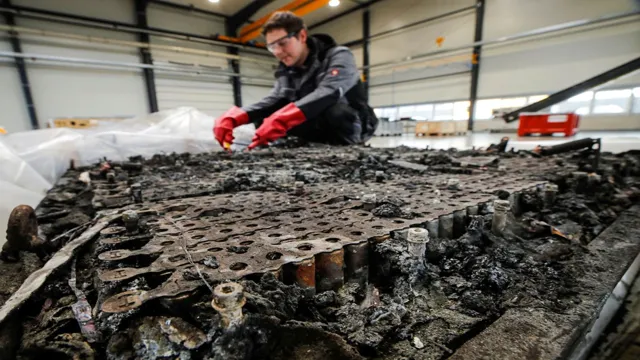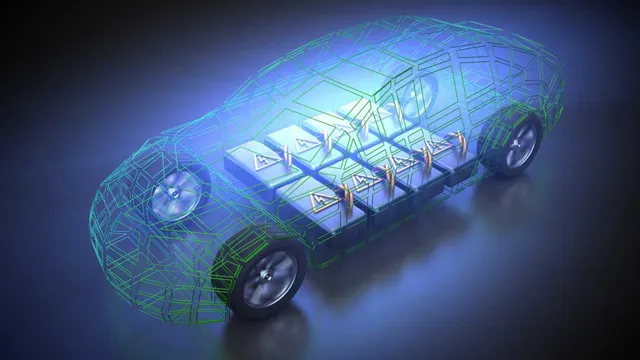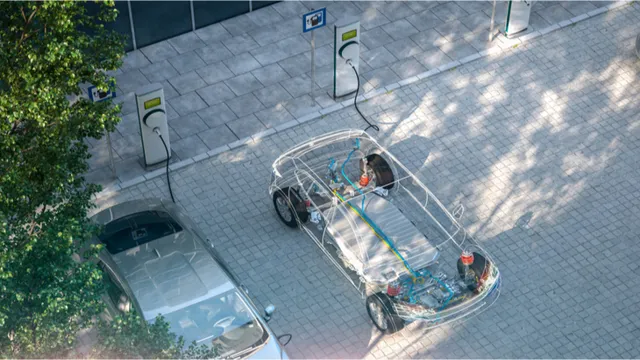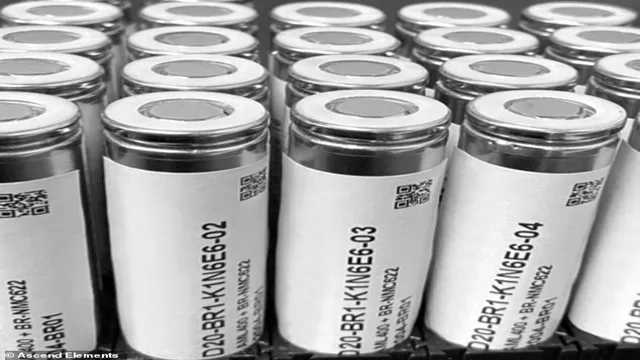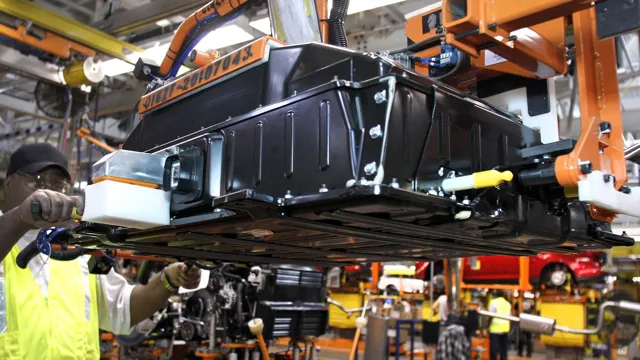Exploring the Toxic Truth: The Dangers of Electric Car Batteries
Electric cars are gaining more and more popularity, and with it comes the question of how they impact the environment. One common concern is related to the batteries used in electric cars, and whether or not they are toxic. After all, batteries are known to contain harmful chemicals such as lead and cadmium.
In this blog post, we will dive into the topic of electric car batteries and explore whether or not they are truly toxic. Join us as we debunk myths and explore the reality of this modern-day question.
Introduction
Electric car batteries are becoming increasingly popular due to their eco-friendliness and efficient use of energy. However, it is important to consider the potential negative impact of their toxic components on the environment. While electric car batteries are generally less toxic than traditional gas-powered car batteries, they still contain harmful materials such as lithium, nickel, and cobalt.
These materials can be detrimental to both the environment and human health if not disposed of properly. Despite this, efforts are being made to reduce the toxicity of these batteries by finding alternative materials and developing better recycling methods. It is crucial that as the use of electric cars continues to grow, we prioritize the sustainability and safety of their batteries.
By doing so, we can help mitigate the negative impact of electric car batteries on the environment while still reaping the benefits of their energy efficiency.
Explaining the basics of electric car batteries
Electric car batteries are an essential component of electric vehicles. These batteries operate differently from the traditional lead-acid batteries found in gasoline-powered cars. Electric car batteries are rechargeable lithium-ion batteries that store electrical energy, which is used to power electric motors.
These batteries are made up of hundreds of individual cells that work together to produce the power needed to propel the vehicle. One of the benefits of electric car batteries is that they are much more efficient than gas engines, meaning that they can produce more power from the same amount of energy. This is one of the reasons why electric cars are becoming more popular, as they are more sustainable and eco-friendly than traditional cars.
As demand for electric cars continues to grow, battery technology is also advancing rapidly, which is helping to make electric cars more affordable and accessible for everyone.
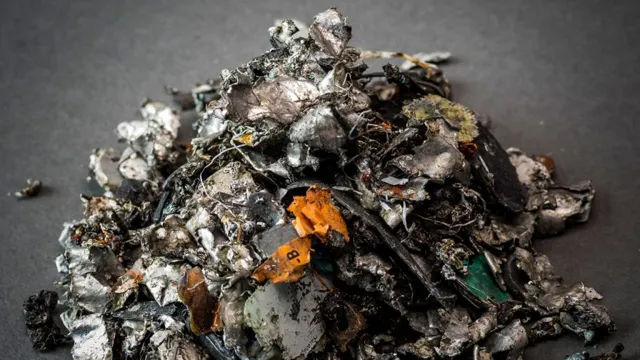
Addressing concerns about battery toxicity
As the world continues to shift towards renewable energy sources, the impact of battery toxicity has become a growing concern. Many people worry about the environmental impact of batteries, and whether they are safe for both humans and the planet. However, advances in technology have made it possible to create batteries that are much more environmentally friendly and less toxic than their predecessors.
By using materials such as lithium-ion and lead-acid, we can create batteries that are more efficient and safe to use. While there is still much work to be done in this area, there is hope that one day we will be able to completely eliminate the environmental and health impacts of batteries.
Battery Composition
The composition of electric car batteries has been a topic of concern lately due to the toxicity of their materials. Most electric car batteries are made up of lithium-ion, a material that is highly toxic and flammable. Lithium-ion batteries contain a mixture of cobalt, nickel, and manganese, as well as small amounts of rare earth metals.
These metals are extracted through environmentally damaging mining practices, which can cause pollution and harm to ecosystems. When batteries are disposed of, they can leach harmful chemicals into the soil and water, leading to potential health hazards. However, many manufacturers are taking steps to reduce the impact of their batteries on the environment.
Some are using recycled materials or exploring alternative battery technologies to make electric cars safer and more sustainable. Overall, while the composition of electric car batteries has its downsides, there is still progress being made towards more sustainable solutions.
Breaking down what makes up electric car batteries
Electric car batteries are made up of a combination of materials that work together to store energy and power the vehicle’s electric motor. At their core, these batteries are made up of a cathode, an anode, an electrolyte, and a separator. The cathode is typically made of a metal oxide, such as nickel, cobalt, or manganese, which is responsible for storing positively charged ions.
The anode, on the other hand, is made up of graphite or other carbon-based materials that store negative ions. The electrolyte serves as the medium for the transfer of ions between the two electrodes, while the separator ensures that the two electrodes do not touch and cause a short circuit. Together, these components work in harmony to power electric cars and provide a cleaner, more sustainable source of transportation.
Identifying potential toxic elements
Battery Composition When it comes to identifying potential toxic elements, one of the first things to consider is the composition of batteries. Batteries contain a wide range of different materials, many of which can be potentially hazardous if not disposed of or recycled properly. For example, most batteries contain metals like lead, cadmium, and nickel, which can be toxic to humans and the environment if they are released into the soil or water supply.
In addition, batteries often contain acids and other chemicals that can be harmful if they leak or spill. To ensure that batteries are handled safely and responsibly, it’s important to understand their composition and take steps to dispose of them in an environmentally friendly way. This might involve working with a recycling company that specializes in battery disposal, or simply taking your old batteries to a designated drop-off location where they can be safely recycled.
Overall, understanding the composition of batteries is a key step in reducing the risk of toxic exposure and protecting the environment for future generations.
Comparing to traditional gasoline car emissions
When it comes to comparing emissions of electric cars to traditional gasoline cars, one of the biggest differences lies in the battery composition. Electric cars are powered by lithium-ion batteries, which don’t emit pollutants during use. This is vastly different from gasoline cars, which emit a host of harmful pollutants into the air.
In fact, transportation is one of the largest contributors to air pollution in the world, with cars being a major culprit. By using electric cars, we are able to significantly reduce our carbon footprint and contribute to a healthier planet. Plus, with advancements in battery technology, it’s possible for electric cars to travel further on a single charge, making them a practical option for everyday use.
So, if you’re looking for a way to reduce your environmental impact, consider making the switch to an electric car.
Recycling and Disposal
When it comes to electric cars, one question that frequently arises is what happens to the battery when it is no longer useful. While electric car batteries are designed to last for many years, they will eventually reach the end of their lifespan. When this happens, it is important to recycle or dispose of them properly.
Electric car batteries can be toxic and hazardous to the environment if not properly handled, so it is critical that they be recycled and disposed of in a responsible manner. Recycling companies can extract valuable metals from the batteries, which can then be used to create new batteries or other products. However, if they are not properly handled, the toxic chemicals and heavy metals in the batteries can leak out and contaminate the environment, potentially causing harm to wildlife and human beings.
Therefore, it is important that we take steps to ensure that electric car batteries are recycled or disposed of in a safe and responsible manner to prevent any harm to the environment.
Discussing efforts to recycle and repurpose batteries
Recycling and disposal of batteries play a crucial role in reducing environmental pollution. With the increasing demand for battery-powered devices, recycling efforts are essential to prevent the accumulation of hazardous waste. Fortunately, many companies and organizations are taking the initiative to recycle and repurpose batteries.
Some companies are using recycled batteries to reduce production costs, while others are using the recycled materials for other purposes. Battery recycling programs such as Call2Recycle in the US and Canadian provinces help people dispose of their batteries properly. These programs collect used batteries and repurpose or recycle them to make new batteries or other products.
Battery recycling technologies have improved over the years, and the process has become more efficient, resulting in fewer emissions and waste. By recycling batteries, we can reduce our impact on the environment and preserve natural resources for future generations.
Examining government regulations on battery disposal
Battery recycling is an essential process in our modern society due to the increasing demand for consumer goods that require the use of batteries. The government has put in place regulations on battery disposal to ensure environmental safety and health. The United States Environmental Protection Agency (EPA) has established the Universal Waste Rule (UWR), under which batteries can be classified as universal waste, making it easier to dispose of properly.
Recycling not only helps reduce the amount of waste in landfills but also recovers valuable metals such as lithium, cobalt, and nickel, which can be reused in the production of new batteries. In addition to standard recycling, some battery manufacturers have also implemented take-back programs to encourage consumers to recycle their batteries. Proper disposal of used batteries is not only beneficial to the environment but also contributes to a sustainable economy.
Conclusion
In summary, while electric car batteries may contain some toxic materials, the overall environmental benefits of electric cars make them a much cleaner and greener option than traditional gas-powered vehicles. And if we continue to invest in research and development, we may even find ways to make electric car batteries even safer and more sustainable in the future. So let’s stay positive and keep driving towards a cleaner, healthier future!”
Reiterating the safety and benefits of electric car batteries
When it comes to electric car batteries, recycling and disposal are often a concern for car owners. But, the good news is that car manufacturers are making great strides in recycling and reusing these batteries. Most of the components of these batteries, such as the lithium, cobalt, and nickel, can be recycled and reused.
Plus, there are many recycling programs available, which helps to minimize the environmental impact of disposing of these batteries. In fact, electric car batteries are much safer and cleaner than traditional combustion engines. Traditional engines release harmful pollutants into the air, contributing significantly to air pollution and its negative impact on human health and the environment.
On the other hand, electric vehicles produce zero emissions, which makes them much less harmful to the environment. Plus, using electric vehicles can also help reduce reliance on fossil fuels, and thus, lessen the carbon footprint. In conclusion, recycling and disposal of electric car batteries is not a concern that consumers need to worry about excessively.
With the increased focus on recycling and reusing these batteries, electric cars are proving to be a much more sustainable option than traditional cars. As more and more people make the switch to electric cars, we can contribute towards a cleaner and more sustainable future for ourselves and future generations.
FAQs
How toxic are electric car batteries?
Electric car batteries can contain toxic materials such as lead, nickel, and cobalt. However, the risk of toxicity can be mitigated through proper disposal and recycling methods.
Can electric car batteries be recycled?
Yes, electric car batteries can be recycled. Recycling helps to recover valuable materials such as lithium, cobalt, and nickel, which can then be used in new batteries or other applications.
How long do electric car batteries last?
The lifespan of an electric car battery can vary depending on the make and model of the vehicle. On average, electric car batteries are designed to last around 8-10 years before needing a replacement.
Is it safe to handle electric car batteries?
Electric car batteries should only be handled by trained professionals due to the potential risk of shock, fire, or explosion. It’s important to follow proper safety procedures when handling these batteries.
